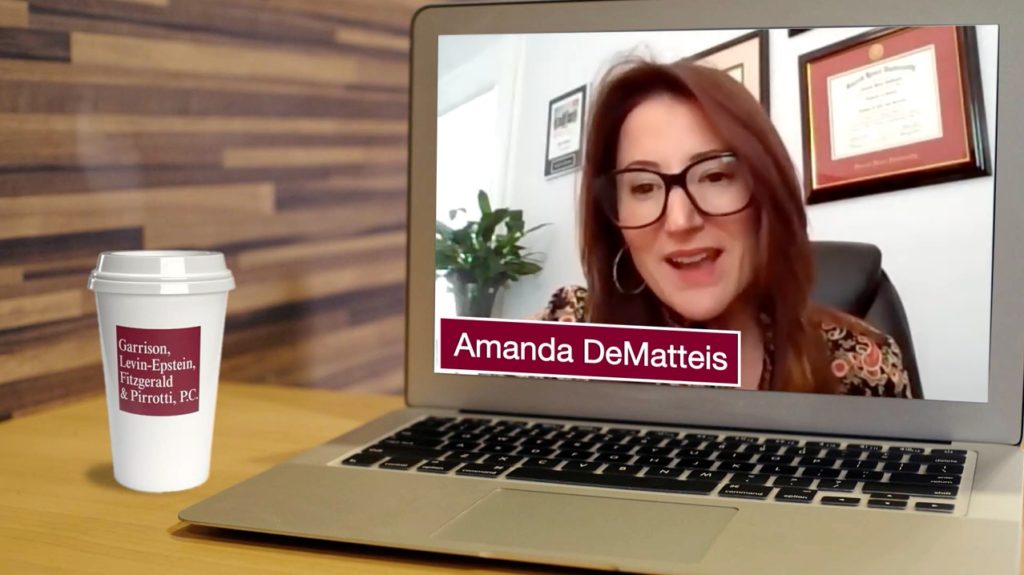Amanda DeMatteis: Hi, Josh!
Josh Goodbaum: Hi, Amanda. What are we talking about today?
DeMatteis: Today, we’re talking about the Family and Medical Leave Act. This is a federal law, and it protects employees who take some time away from work on account of their own serious health condition or the serious health condition of a family member. And we get asked this question a lot, “When I’m out on FMLA, what can, or more importantly, what can I not do while taking some time away from work?” So, I thought we’d attack that question.
Goodbaum: Right, so can is pretty straightforward. You can, and should, take care of yourself or your family member who’s sick. FMLA – the whole point of FMLA – is it’s time for you and your family so you don’t have to worry about your job. Your job is going to be there for you when you get back. What you can’t do is a little bit trickier, but there’s a list, okay?
Number one, you can’t be forced by your employer to do any work – except for really minor things, like sharing a password or locating a file. The whole point of FMLA is that you’re not working. That said, you can work if you want to. Some people are commissioned employees who want to just keep up with their clients. It’s fine to continue to work while you’re on FMLA, as long as you’re doing it voluntarily and not because your employer is forcing you. Another thing you can’t do is lie to your employer about why you’re taking FMLA. That’s called fraud – it’s going to get you fired. So, don’t take FMLA about some made-up medical condition – that’s a problem, alright?
Related to that, you can’t fail to update your employer about your medical condition if they’re asking for reasonable updates or if they’re asking you about your expectation about when you’re going to return. A lot of people go out on FMLA and they don’t know when they’re going to return. And their doctor will fill out a form that says, ‘This person will be out for 30 days and then we will reevaluate.’ Well, to get to that 30-day deadline, provide some more documentation. Don’t just ignore your employer’s inquiries because you say, ‘Hey, I’m out on FMLA.’
One thing you can do while you’re on FMLA most of the time, I repeat, you CAN do, is work. You can have a moon-lighting job or a second job that you do while you’re out on FMLA from your primary job. The exception is if your employer has a uniformly-applied policy that restricts outside or supplemental employment. So, if your employer says ‘Hey, nobody who works here is allowed to have a second job. And we’re enforcing it against everybody, not just people out on FMLA, but nobody is allowed to have a second job,’ you can’t take FMLA to go work at your second job. The other thing to be careful about if you’re moonlighting or working at a second job is that if the job, the moonlighting job, is very similar, you want to make sure that it doesn’t undermine your justification for the FMLA. Imagine, for example, that you tell – you know, you’re a nurse, you tell your hospital employer, ‘I’m taking FMLA because I injured my knee and I can’t support any patients.’ Alright, well, if you’re doing a job that shows that your knee isn’t actually hurt, then you don’t have the serious health condition that would support your FMLA leave, that would justify your FMLA leave. So, you don’t want to do a job that is inconsistent with the serious health condition that you have provided to your employer. So, those are just a few tips about what you can and cannot do while you’re out on FMLA leave.
DeMatteis: Really valuable information for any employee with a health condition that needs some time away from work. Thanks so much for watching. We’ll see you next time!

